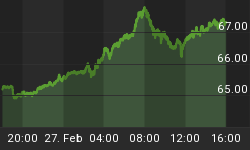Why Read: Because in some (and perhaps many) respects Greece can now be seen as a small, and hence comparatively easily understood, 'microcosm' of what may happen in other developed countries going forward.
Featured Article: Multiple articles and other media last evening and this morning have reported and discussed yesterday's New Democracy Party victory in yesterday's Greek election.
Commentary: It has been widely reported that Greece's New Democracy Party stands behind the necessity of austerity programs for Greece - albeit conditioned by statements that it intends to work to re-negotiate austerity conditions imposed by the terms of the existing Greek bail-out arrangements. It is also obvious that in the six weeks since the failed May 6 Greek General Election, the anti-austerity measure Syriza leftist party gained very significant traction. Official projections of yesterday's vote has the New Democracy Party and Syriza Party at 29.5% and 27.1% respectively. Aside from immediate issues as to whether a coalition government will now be formed in Greece, It is what happens from here that now will prove interesting, and worthy of careful observation from the perspective:
-
not only what happens in Greece over the next few weeks and months; but,
-
perhaps far more importantly, what lessons can be learned from watching events in Greece as they unfold as possible benchmarks for activities that may be replicated in other developed countries.
In this regard:
-
first and foremost, has Greece, irrespective of what it or any other country(ies) does, been left out on a 'too little, too late' limb. Stated differently, does Greece simply have to collapse under its own 'financial history and current position' weight at a future date under any circumstance;
-
second, given the propensity of people generally to not want to 'give up what they have', introduction of what will very likely be seen as very harsh austerity measures in Greece are likely to result over the next few weeks and months in social unrest;
-
third, worry about potential social unrest, and social unrest itself if it reoccurs in Greece, will have to affect Greece's tourism business;
-
fourth, also consider: Who wants to extend credit to, or order things from, business whose credit risk is such that loan repayment and order fulfillment are at serious risk - where there are alternate borrowers and suppliers?;
- fifth, economic stability in any country - developed or not - is very much about the prospect of economic growth. It isn't, and won't be, enough to simply introduce austerity programs that ultimately will 'pay back prior year's bad fiscal practices and overspending'. For Greece to survive as an economy and growing economically from here without in the end defaulting on its debt and having to 'start over' (i.e. resetting its 'monopoly board/) will be a herculean task that will require austerity at levels not yet contemplated, and very likely will prove to be impossible. This in a very small country. To put Greece in 'size perspective', in 2011 (from Wikipedia):
- Greece was the 35th largest country in the world by GDP, with GDP reported to be U.S.$303 billion,
- 8th largest in the 17 country Eurozone, and
- accounted for only 1.7% of total reported Eurozone GDP of U.S.$17.6 trillion. , and less than ½ of 1% of total estimated world GDP.
Consider carefully:
-
how small the Greek economy is;
-
in the circumstances of its size, the worry over contagion in the Eurozone and elsewhere should Greece fail financially;
-
what does that worry say about 'derivatives' and other contagion in the context of a 'multiplier failure' by a larger country such as Spain;
-
the concept of 'Too Big to Save' in the context of the 'Too Big To Fail' arguments that contributed to the events of 2008 and continuing.
-
In Greek mythology Hercules is the son of the Greek Gods Zeus and Hera. He was stripped of his immortality as an infant and has to become a true hero in order to reclaim it. It might be considered fitting that Greece is the developed country that the 'eyes of the world' currently are on in the context of the current ongoing Eurozone financial crisis and its potential economic contagion affects on the Eurozone and well beyond.
Goldman Sach's is reported this morning, in what is said to be a good summary statement:
"Overall, Greece will remain a source of uncertainty due to its macro-dynamics. The country is undergoing extreme economic pressures that are likely above and beyond austerity; prolonged uncertainty have led to a multi-year suppression in confidence and a collapse in credit growth, which has helped compress the private sector, create supply shortages and has contributed to the lack of investment or privatization efforts, higher structural unemployment and persistent inflation currently observed. Unless this uncertainty of tail events is lifted over Greece, moderate solutions will be prone to marginalization, while extreme and populist views could become ever so prevalent."
Greek vote no magic solution for EU
Source: The Financial Post (from Reuters, Caroline Valetkevitch and Edward Krudy), June 17, 2012
Reading time: 4 minutes















